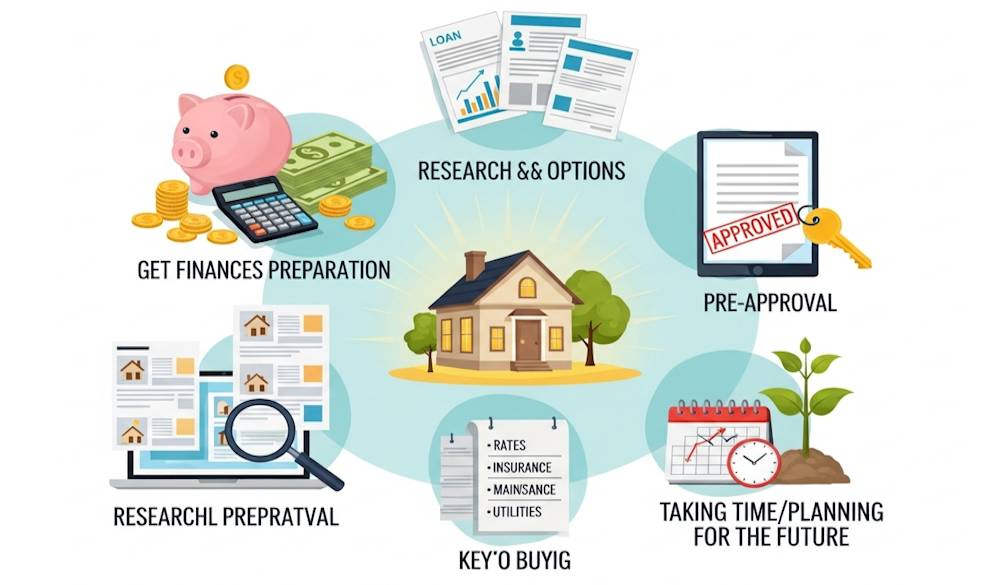Essential Tips for First-Time Home Buyers

Buying your first home is one of the biggest milestones in life. It’s a mix of excitement, nerves and anticipation, all rolled into one. But before you get swept away in property listings and weekend inspections, it’s important to understand the process and prepare properly. With the right knowledge and planning, purchasing your first home can be a smooth and rewarding experience.
1. Get your finances in order
Before you start house hunting, take a close look at your financial situation. Review your income, expenses, debts and savings to understand what you can realistically afford. It’s also worth checking your credit score, as this will influence the type of home loan and interest rate you may qualify for.
A good way to begin is by setting a clear budget that factors in not just the purchase price, but also additional costs like stamp duty, conveyancing fees, moving expenses and potential renovations.
2. Save for a deposit
Saving for a deposit is one of the biggest challenges for first-time buyers. Generally, lenders prefer a deposit of at least 20% of the property’s purchase price. However, there are options for smaller deposits if you’re prepared to pay lenders mortgage insurance (LMI).
Building up your savings takes time and discipline. Set up a separate savings account, automate your deposits and consider trimming unnecessary expenses. Government grants and first-home buyer schemes can also give your savings a welcome boost.
3. Research your options
Not all properties are created equal — and neither are all loans. Spend time researching different home types, locations and price brackets. Think carefully about your lifestyle needs and long-term plans. Are you looking for a forever home, or something that can grow with you over time?
Equally, explore the different loan types available. Compare fixed-rate and variable-rate loans, and consider features such as offset accounts and redraw facilities. Consulting a mortgage broker or financial adviser can help you navigate the options and find a loan that suits your needs.
4. Get pre-approved
Securing pre-approval for your loan is an important step before making an offer. Pre-approval gives you a clear idea of how much you can borrow and shows sellers that you’re a serious buyer. It can also save time and stress when you find a property you love.
Pre-approval usually lasts for three to six months, so you’ll have a window to shop around without worrying about your borrowing power changing unexpectedly.
5. Don’t forget the hidden costs
It’s easy to focus solely on the purchase price, but property ownership comes with ongoing expenses. Rates, insurance, maintenance and utilities can add up quickly. Make sure to account for these costs in your budget so you’re not caught off guard.
A good rule of thumb is to set aside a small percentage of your income each month to cover future maintenance or emergency repairs.
6. Take your time
It’s natural to feel eager to buy your first home, especially in a competitive market. However, rushing into a purchase can lead to costly mistakes. Take your time to inspect properties carefully, ask questions and seek professional advice when needed. Remember, this is a long-term investment, and patience often pays off.
7. Plan for the future
Your first home doesn’t have to be your last, but it should be a step in the right direction. Consider how your needs might change in the coming years — whether that’s starting a family, changing jobs or relocating. Choosing a property and a loan that offer flexibility will help you adapt as your life evolves.
Buying your first home can be both exciting and daunting, but preparation is key. By understanding your finances, researching your options and getting expert guidance, you’ll be in a strong position to make confident, informed decisions. With the right home loan, your dream of home ownership can become a reality.

















